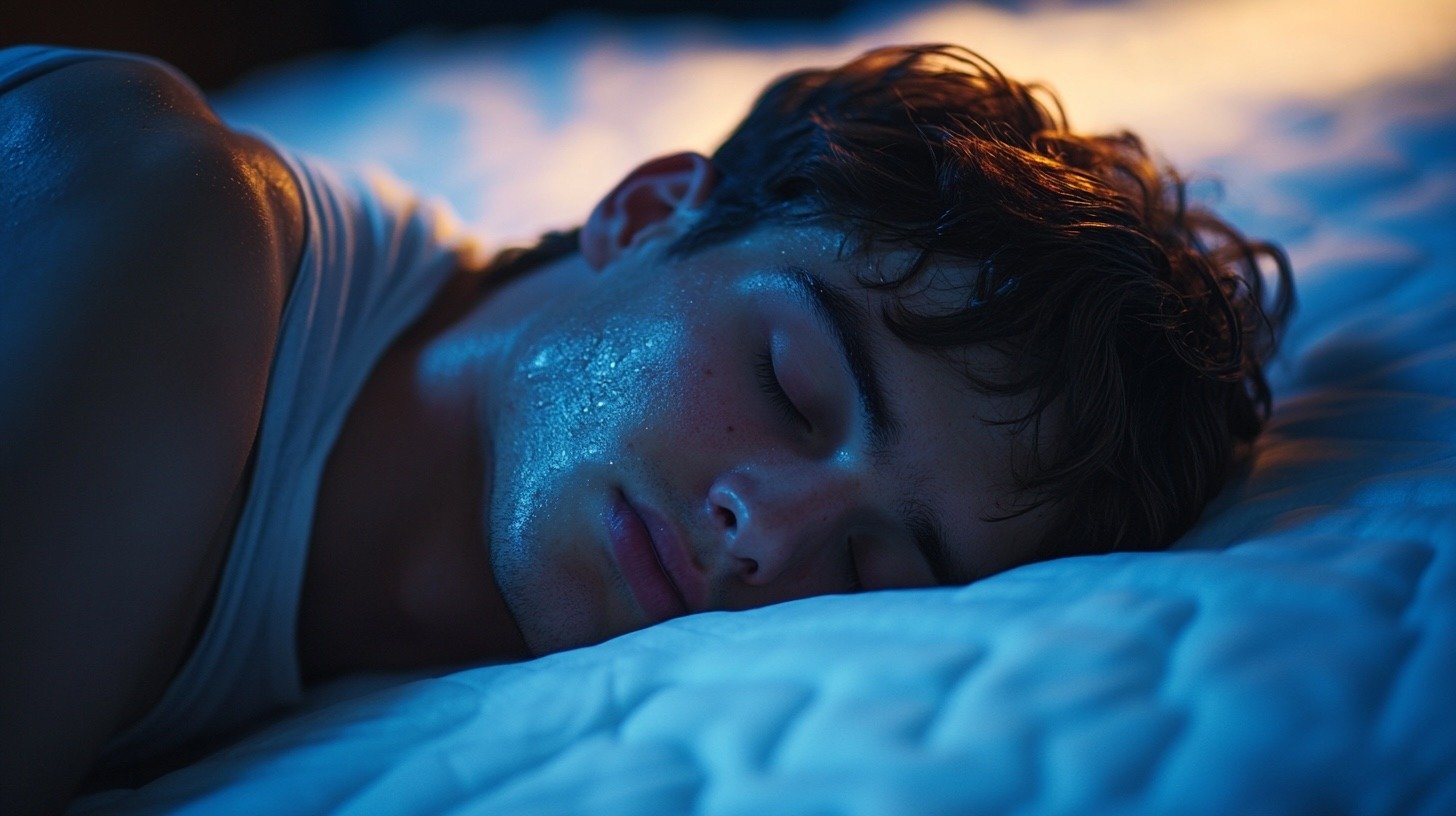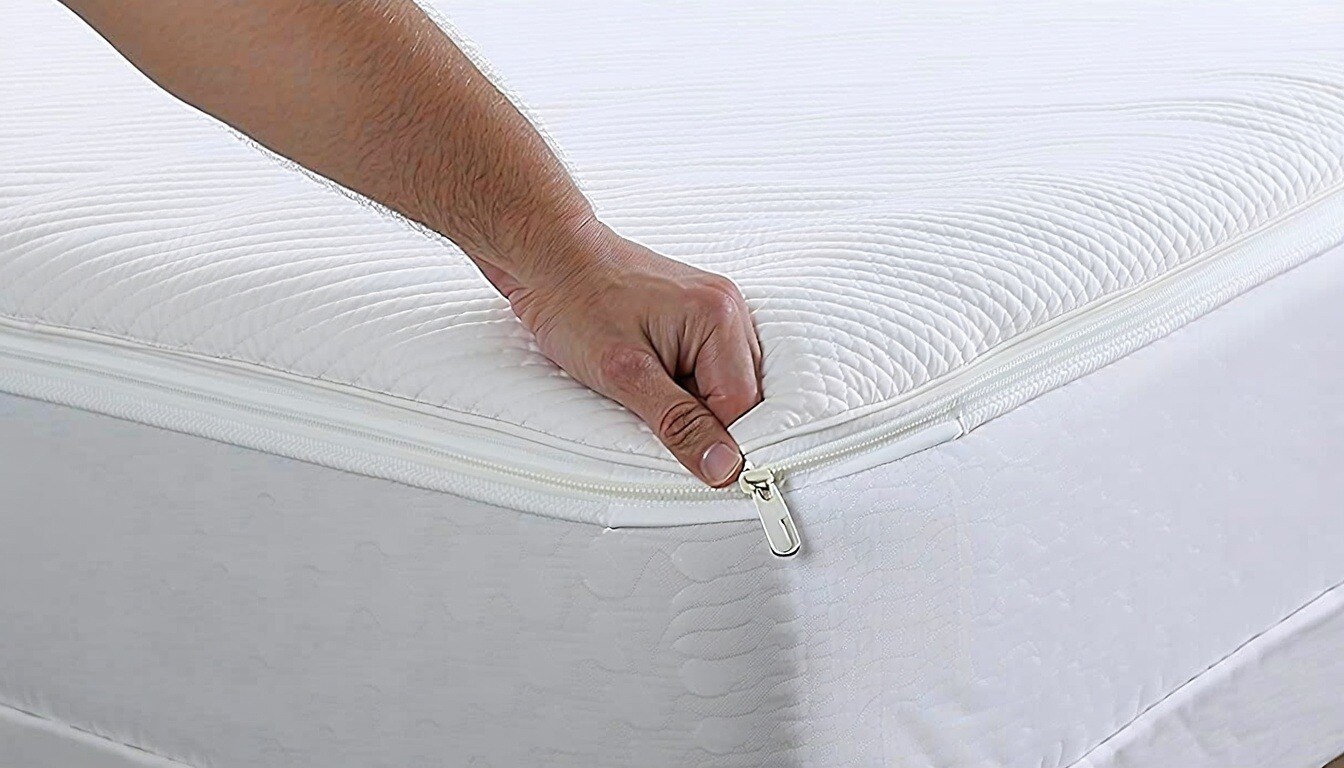
Why Do I Sweat So Much When I Sleep?
Common Causes of Night Sweats
Hormonal Changes
Significant hormonal shifts are one of the top reasons people experience night sweats. Menopause, pregnancy, and the postpartum period can all bring dramatic changes in hormone levels, triggering night sweats.
During menopause, night sweats are often linked to hot flashes—with up to 85% of women experiencing both. However, they’re not exclusive to menopause. Hormonal disorders like hyperthyroidism or conditions affecting sex hormones can also be culprits.
Medications and Substances
Some medications list excessive sweating, including night sweats, as a side effect. These include antidepressants (particularly SSRIs), certain steroids, and fever-reducing drugs.
Substances like alcohol, caffeine, and recreational drugs can also contribute to night sweats, especially when consumed in excess.
Infections
Serious infections, such as tuberculosis or HIV, can trigger night sweats. However, if night sweats are caused by an infection, they’re usually accompanied by other symptoms like chills, fever, or nausea.
Anxiety and Stress
People living with anxiety disorders often experience sleep disturbances, including night sweats. In some cases, treating the underlying anxiety can help reduce nighttime sweating.
Hyperhidrosis
Hyperhidrosis is a condition that causes excessive sweating both day and night, even without a clear trigger. People with this condition tend to sweat profusely regardless of environmental temperature.
Is It Normal to Sweat at Night?
Some sweating during sleep is normal—it’s your body’s way of regulating temperature. However, waking up drenched in sweat night after night isn’t typical. If your sweating feels excessive or interferes with your sleep, it’s worth investigating.
Night Sweats vs. Hot Flashes
The difference between night sweats and hot flashes comes down to timing. Hot flashes are sudden bursts of heat that can happen anytime, while night sweats specifically occur during sleep. Although they’re often related, you can experience one without the other.
When Should You Be Concerned About Night Sweats?
Most of the time, night sweats are harmless. But if they appear suddenly and don’t improve with simple changes, or if they’re paired with other symptoms, it’s time to see a doctor.
Watch for these warning signs:
-
Persistent fever
-
Chronic fatigue
-
Unexplained weight loss
-
Gasping for air during sleep
-
Body aches or chills
-
Appetite loss
-
Swelling
-
Weakness or numbness
These symptoms could point to infections, sleep apnea, or (in rare cases) more serious conditions like certain cancers.
Tips to Manage Night Sweats at Home
If your doctor rules out serious causes, there are plenty of ways to make your sleep environment cooler and more comfortable.
Prep Before Bed
-
Take a cool shower before turning in.
-
Wear light, breathable pajamas made from moisture-wicking fabrics.
-
Keep a water bottle nearby to rehydrate.
-
Place a cool cloth or ice pack under your pillow.
Cool Down Your Room
-
Lower the thermostat to around 18°C (65°F), which is optimal for sleep.
-
Use a fan to improve air circulation.
-
If you don’t have air conditioning, open a window for fresh air.
Identify Your Triggers
Certain foods, drinks, and activities can trigger night sweats. Common culprits include:
-
Alcohol and caffeine
-
Spicy foods
-
Intense evening workouts
-
Smoking or vaping
Keep track of when your night sweats flare up to identify patterns and avoid triggers before bed.
Update Your Bedding
-
Swap heavy blankets for lightweight, breathable options.
-
Use moisture-wicking sheets, such as those made from bamboo or performance fabrics.
-
If night sweats are severe, consider investing in a cooling mattress designed to promote better airflow.
Final Thoughts
Occasional night sweats are typically harmless, but persistent or severe sweating should never be ignored. Whether the cause is environmental, hormonal, or health-related, small adjustments to your lifestyle and sleep environment can often make a big difference.
If you’re unsure whether your night sweats are normal, it’s always best to check with your healthcare provider—better safe than sorry when it comes to your sleep health.


